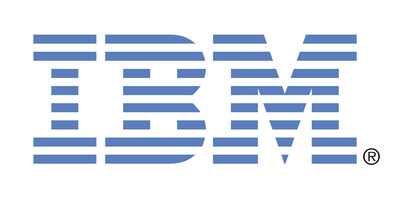IBM’s "Automotive 2035" Study Unveils Future Trends in the Auto Industry
IBM’s Institute for Business Value has recently released a groundbreaking study titled "Automotive 2035," which provides a comprehensive analysis of the evolving landscape of the automotive industry. This report throws light on the challenges and opportunities as the sector transitions towards new business models and technologies. The main focus is on the shift from traditional vehicle manufacturing to modern, software-driven, and electrified vehicles over the next decade.
Key Insights from the Study
The study reveals some fascinating statistics and projections that paint a picture of what the automotive world might look like in the next ten years:
- Electrification of Vehicles: It is anticipated that by 2035, approximately 80% of new cars will incorporate electrified powertrains. This means that most vehicles will either be fully electric or hybrid, using a combination of electric and conventional engines.
- Software-Defined Vehicles (SDVs): A significant finding is that 74% of industry executives believe that cars will be primarily defined by software and powered by artificial intelligence by 2035. This transition to SDVs represents a shift in focus from hardware to software, where the vehicle’s value is tied more to the digital experiences it offers rather than just its physical attributes.
- Recurring Revenue Models: The automotive industry is moving away from a one-time sales model towards a recurring revenue model. This involves offering digital services and products on a subscription basis, thus creating a continuous revenue stream from the same vehicle over time.
The Study’s Methodology
The "Automotive 2035" study is a data-intensive analysis based on interviews with 1,230 senior executives across the automotive value chain, including OEMs (Original Equipment Manufacturers), suppliers, and other industry stakeholders. These interviews were conducted across nine countries, providing a global perspective on industry trends.
The Shift to Software-Defined Vehicles
The transition to SDVs is considered crucial for future brand development. Jeff Schlageter, the Automotive Industry General Manager at IBM, highlights that the value of a vehicle will increasingly be determined by its ability to deliver superior customer experiences through continuous updates and new applications. This means that car manufacturers will need to focus on creating a seamless integration of software and hardware to offer personalized and enhanced user experiences.
Challenges in Realizing Software-Defined Vehicles
The study identifies several obstacles that the industry needs to overcome to achieve the vision of SDVs:
- Software and Hardware Integration: One of the primary technical challenges is the separation of software and hardware layers. Traditionally, software for different vehicle components like brakes and airbags has been developed separately. However, this approach is not feasible for SDVs, which require an integrated software architecture.
- Development Tools and Methodologies: A staggering 77% of executives express concerns over the lack of adequate software development tools and methodologies. This shortage poses a significant barrier to the rapid development and implementation of SDVs.
- Cultural Shift: Another challenge is the strong mechanical-driven culture prevalent in the automotive industry. About 74% of respondents believe this culture makes it difficult to embrace a software-driven product development approach.
Harnessing AI and Cloud Technologies
Jeff Schlageter points out that leveraging cloud and AI technologies can help automakers explore new ideas, test various software configurations, and gain valuable insights. AI can analyze large datasets to identify patterns and make predictions, thereby accelerating the enhancement of SDVs and providing personalized experiences for drivers.
Broader Discussion on SDVs
IBM and General Motors hosted a LinkedIn Live broadcast to delve deeper into the issues surrounding SDVs. This event, held in Detroit, offered a platform for industry leaders to discuss the challenges and opportunities in developing SDVs. A recording of the event is available online for those interested in gaining further insights into the future of automotive technology.
Historical Context and Future Outlook
The "Automotive 2035" study is part of a series of longitudinal studies by IBM, with the first report, "Automotive 2020," published in 2008. Over the years, these studies have provided valuable insights into the evolving dynamics of the automotive sector, helping industry stakeholders make informed decisions.
About IBM
IBM stands as a global leader in hybrid cloud and AI solutions, offering consulting expertise to clients in over 175 countries. With a focus on innovation, IBM helps organizations transform digitally by utilizing insights from data, streamlining business processes, and reducing costs. The company’s commitment to trust, transparency, and responsibility underpins its efforts to support industries such as financial services, telecommunications, and healthcare.
For more detailed information, interested readers can access the full "Automotive 2035" report on IBM’s official website. The report provides an extensive analysis of the challenges and opportunities facing the automotive industry as it prepares for a future dominated by software-defined and electrified vehicles.
Conclusion
The "Automotive 2035" study by IBM offers a comprehensive look at the future of the automotive industry, highlighting the pivotal shift towards electrified and software-driven vehicles. While the journey involves overcoming significant technical and cultural challenges, the potential benefits in terms of enhanced user experiences and new revenue models are immense. As the industry adapts to these changes, it is essential for automakers, suppliers, and other stakeholders to collaborate and innovate, ensuring a smooth transition to the new automotive era.
For more Information, Refer to this article.

































